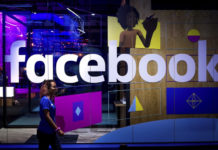Author: John Battelle
Technology’s march is taken as gospel. But if we’ve learned anything from the past year, it’s that Valley giants often miss key human externalities. Case in point: Amazon Go.
So Amazon Go launched this week, and the rush to praise the “store without cashiers” as the future of retail was immediate and sustained. I found Ben Thompson’s considered take representative of the bunch:
For decades technology helped the industrial world work better; more and more, technology is replacing that world completely, and there will be pain. That, though, is precisely why it is worth remembering that the world is not static: to replace humans is, in the long run, to free humans to create entirely new needs and means to satisfy those needs. It’s what we do, and the faith to believe it will happen again will be the best guide in figuring out how.
… The lines outside Amazon Go, though, are a reminder of exactly why aggregator monopolies are something entirely new: these companies are dominant because people love them. Regulation may be as elusive as Marx’s revolution.
But…do people really love them? Do we really want to buy our food at automated, faceless Amazon stores? Do we really want to cleanse all human contact from what is now one of our most human and most social activities — the gathering of our sustenance? When did society collectively decide that we no longer value the produce guy, the butcher, or the cashier who knows our kids and asks how our mother in law is faring?
My first take on Amazon Go is this: F*cking A, do we really want eggplants and cuts of meat reduced to parameterized choices spit onto algorithmized shelves? Ick. I like the human confidence I get when a butcher considers a particular rib eye, then explains the best way to cook that one cut of meat. Sure, technology could probably deliver me a defensibly “better” steak, perhaps even one tailored to my preferences as expressed through reams of data collected through means I’ll probably never understand.
But come on.
Sometimes you just want to look a guy in the eye and sense, at that moment, that THIS rib eye is perfect for ME, because I trust that butcher across the counter. We don’t need meat informed by data and butchered by bloodless algorithms. We want our steak with a side of humanity. We lose that, we lose our own narrative.
What I find troubling about Amazon Go is how easily we are accepting our own loss of agency, in exchange for the vaunted goals of convenience and efficiency. It’s exactly the same relinquishment of agency demanded by Facebook’s News Feed — an opaque, data-driven platform that presumes to divine what we want to consume, independent of our own active participation in the preparation stage of that consumption. Instead of feeding us information, however, Amazon literally wants to feed us our groceries. Along the way, we lose the humans who, for millennia, have borne witness to our independent agency. (The humans in Facebook’s case are reporters and editors, FWIW. With Uber, they’re drivers and conversation partners. And so on…).
We’re losing something critical here, and we’re not talking about it enough. Sure, we wring our hands about “job loss,” but that’s not my point. It’s something deeper — we seem to be gutting our society…because we can?
In his piece analyzing Go, Thompson writes:
It seems obvious that Amazon Go stores of the future will rarely have employees in store at all: there will be a centralized location for food preparation and a dedicated fleet of shelf stockers. That’s the thing about Amazon: the company isn’t afraid of old-world scale.
Thompson’s argument is that our society is freeing workers from jobs that were once necessary in an industrial economy, so that they may find more creative and fulfilling roles doing … something else. But what if in fact helping someone understand the intricacies of an eggplant, while also connecting in a uniquely human fashion, is in fact what our society does want?
Our technology platform’s “answers” to our society’s supposed needs — the seemingly inevitable capital-efficient march of companies like Amazon and Facebook into every possible sector of our lives — that march is taken as a foregone conclusion, an answer to a question we’ve never even posed to ourselves. Of course we’d take Bezos’ approach over however those markets previously worked.
Why?
In the past, our tech platforms have attacked markets that really were broken — and created magical experiences that made our lives better. Facebook really was a better way to stay connected to our friends and family. Amazon really was a better way to buy stuff online. Google really was a better way to find information. NetFlix was a better way to watch movies. And so on.
But as they pursue the crack cocaine of capitalism — unmitigated growth — are technology platforms pushing into markets where perhaps they simply don’t belong? When a tech startup called Bodega launched with a business plan nearly identical to Amazon’s, it was laughed off the pages of TechCrunch. Why do we accept the same idea from Amazon? Because Amazon can actually pull it off?
It’s this question that dogs me as I think about how Facebook comports itself : We know what’s best for you, better than you do in fact, so trust us, we’ll roll the code, you consume what we put in front of you.
But…all interactions of humanity should not be seen as a decision tree waiting to be modeled, as data sets that can be scanned for patterns to inform algorithms. As Thompson enthusiastically chronicles, technology companies are ruthlessly efficient machines: They identify markets fraught with “inefficiencies” and apply their scale, processing power, and absurdly one-sided data monopolies to remake those markets in their own image. Coupled with seemingly intractable economic “laws” (like Thompson’s beloved “aggregation theory”), the outcome feels utterly predestined.
Thompson’s justification for the socio-political inevitability of Amazon’s approach — that displaced workers will find new, more fulfilling roles in society — is now pervasive amongst tech’s defenders. I’ve spent a fair amount of intellectual cycles trying to understand exactly what those new roles might be — Craft brewer? Hot yoga instructor? Elder careperson? — but now I think perhaps I’m paying attention to the wrong question. Perhaps a better one is simply this: Why get rid of the produce guy in the first place?
source: medium.com












